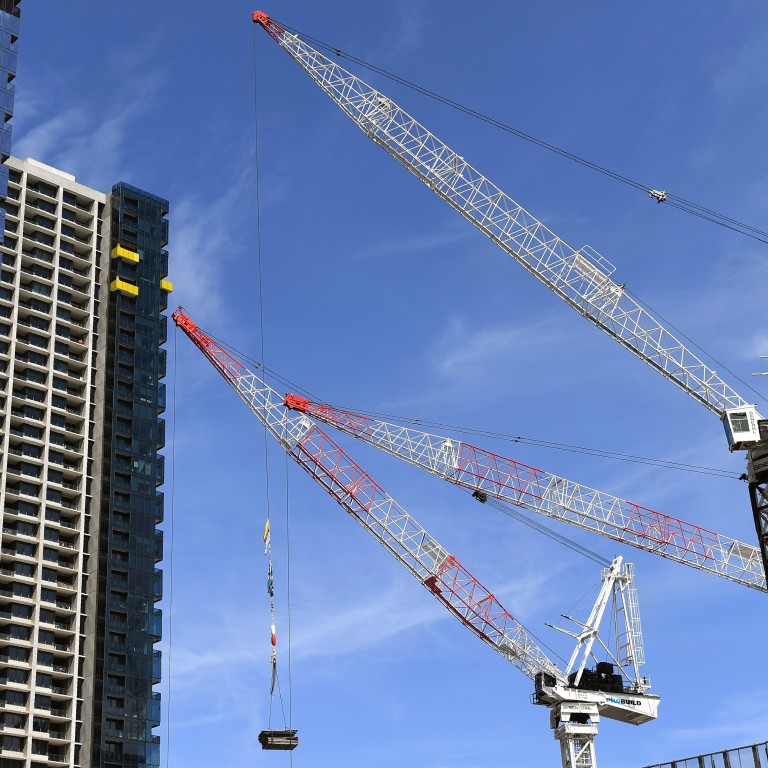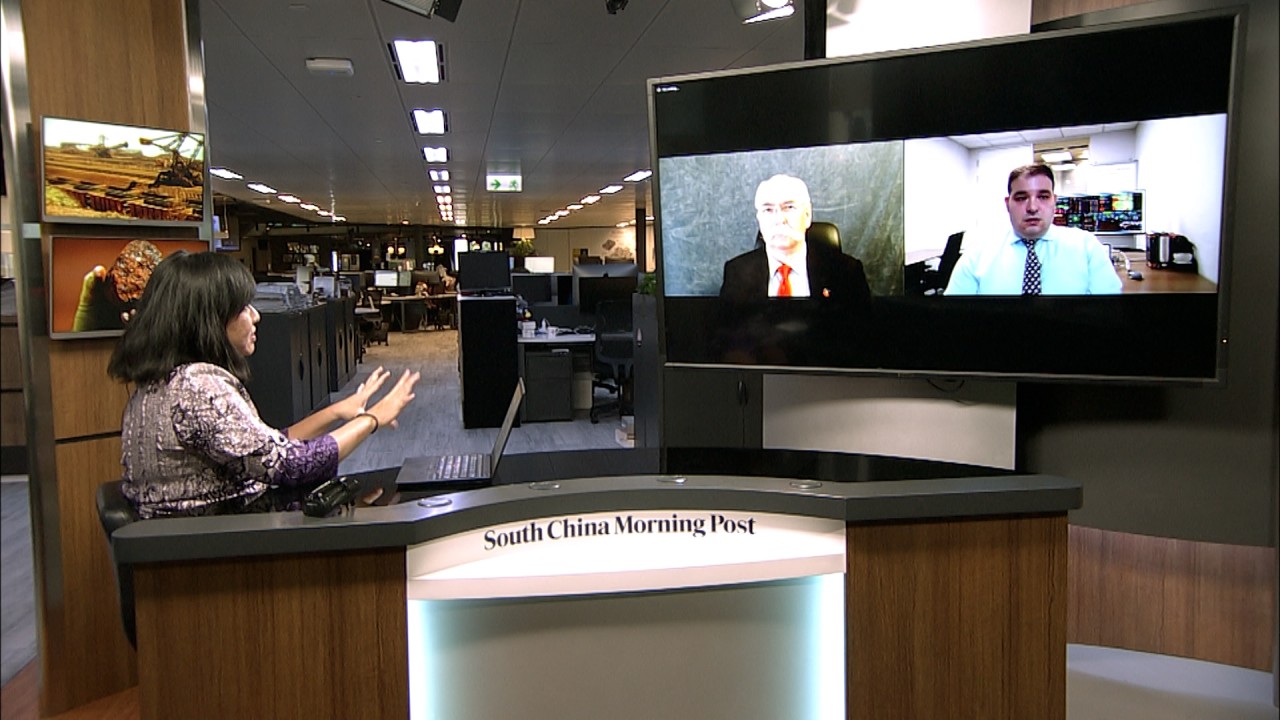
China-Australia relations: Beijing slams Canberra for ‘politicising’ canned US$230 million deal on national security grounds
- State-owned China State Construction Engineering Corporation has withdrawn its offer to buy Probuild
- The sale was expected to be blocked by Australian Treasurer Josh Frydenberg and the Foreign Investment Review Board (FIRB) due to national security concerns
State-owned China State Construction Engineering Corporation has dropped its bid for the Australian builder of the tallest residential tower in Sydney, Probuild, after indications that Australian Treasurer Josh Frydenberg would block the deal on national security grounds.
This did not escape Beijing’s attention, and on Tuesday China’s Ministry of Foreign Affairs cautioned Canberra not to “politicise” business deals and jeopardise long-standing commercial relationships, as well as agreed-upon free trade between the two countries.
Probuild’s South African parent company, Wilson Bayly Holmes – Ovcon (WBHO), said in a statement that China State Construction Engineering Corporation had walked away from its unsolicited proposal to pay a reported A$300 million (US$231 million) for its 88 per cent stake after receiving communications from Australia’s Foreign Investment Review Board (FIRB) and Frydenberg.
Frydenberg, who presides over the FIRB, has the power to call off a deal even if it has been given the go-ahead by the advisory body. The FIRB does not generally provide information on its decisions.
WBHO remains optimistic about the fundamentals of Probuild and its prospects in the Australian market and continues to assess all potential opportunities for Probuild to maximise shareholder value and the value and potential of Probuild
WBHO said the deal was all but done after the completion of six months of due diligence. It had announced the bid in June and over the second half of 2020 said the Australian Probuild management team had been “intimately involved in the transaction and were committed to the successful completion of the steps to finalise it”.
“WBHO notes that after significant time, investment and ongoing commitment from both WBHO and the potential acquirer in progressing the proposed transaction, due diligence was completed and commercial terms of the proposed transaction were otherwise materially agreed between the parties,” the company said in its statement to the Johannesburg Stock Exchange.
“WBHO remains optimistic about the fundamentals of Probuild and its prospects in the Australian market and continues to assess all potential opportunities for Probuild to maximise shareholder value and the value and potential of Probuild.”
The FIRB did not immediately respond to request for comment, while Probuild said on Tuesday that there was “nothing available directly at this time”. The company also said it was unable to confirm the value of the proposed deal.
This has created a treacherous and vague environment for the business sector, which had for the past five to 10 years enjoyed Chinese capital investments in many projects.
Last month, the FIRB approved Perth-based Sheffield Resources’ sale of 50 per cent of its Thunderbird mineral sands mine in Western Australia to Chinese steel producer Yansteel for A$130 million (US$100 million).
While Australia’s new laws were not targeted at China, Beijing has raised concerns about Canberra’s rejection of several of its investment deals due to “ambiguous and unfounded ‘national security concerns” and charged Australia with a lack of “openness” in trade matters.
On Tuesday, Chinese the Ministry of Foreign Affairs spokesman Zhao Lijian reiterated that message, saying the Probuild rejection exemplified a repeated pattern of Australia turned down Chinese investment deals especially when there was no reason to be too critical.
Any practice of politicising normal business cooperation and intervening on the grounds of so-called national security is wrong
“The Chinese government has always asked Chinese companies to abide by international rules and local laws and regulations,” Zhao said.
“Any practice of politicising normal business cooperation and intervening on the grounds of so-called national security is wrong. We hope that Australia will adhere to the principle of engaging in an open market and fair competition and provide all businesses with fair and non-discriminatory treatment.”
According to research by KPMG and the University of Sydney, Chinese investments in Australia plunged 58.4 per cent to A$3.4 billion (US$2.6 billion) in 2019 from A$8.2 billion in 2018. The number of deals also fell 43 per cent to 42 in 2019 from 74 in 2018.

09:18
Will iron ore be dragged into the ongoing China-Australia trade conflict?
However, in Australia, which relies heavily on foreign investments, the United States and Britain are the biggest foreign investors and not China, according to the Australian Department of Foreign Affairs and Trade.
Probuild is well acquainted with Chinese property projects in Australia after it was appointed to build Sydney’s tallest residential tower, the Chinese state-owned Greenland Group’s Greenland Centre, located in the middle of the central business district in 2016.
The construction company replaced another top-tier builder, Multiplex, after it fell out with Greenland over contract details. The 86-storey tower is nearing completion.

